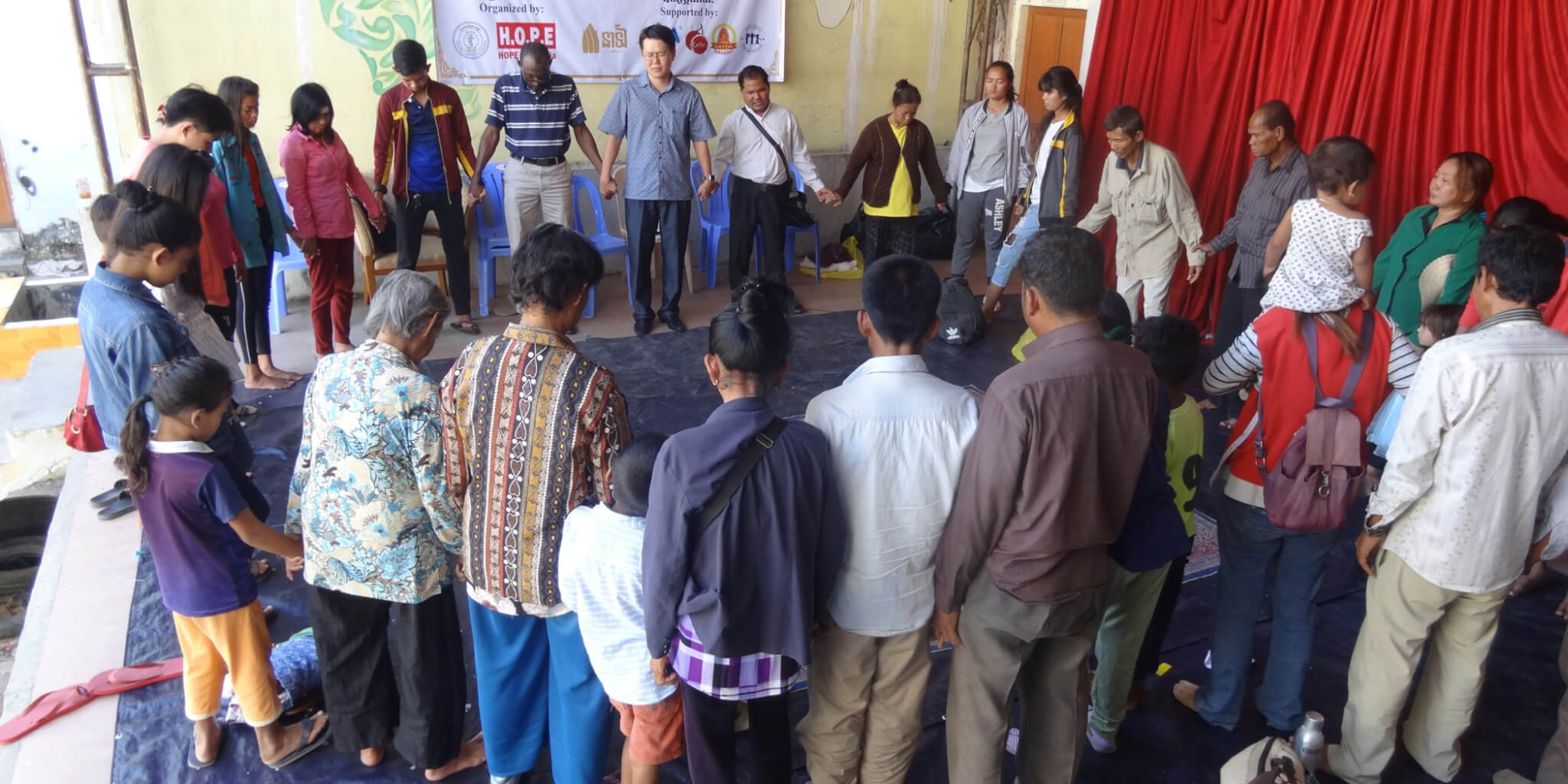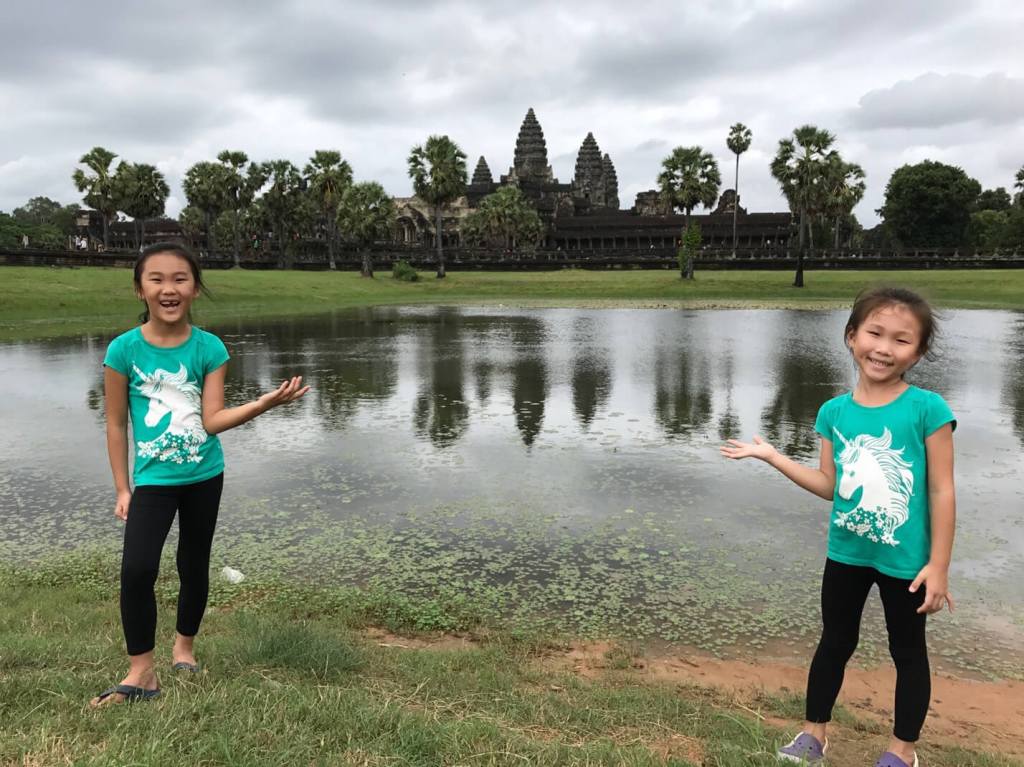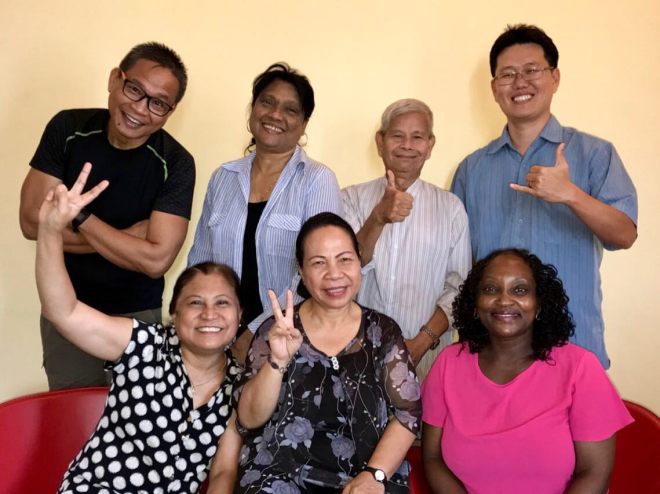
By Christie R. House
May 6, 2019 | Atlanta, Ga.
Part one of a three-part series
One way to understand the wideness of mission work is to delve into the life journeys of United Methodist missionaries serving full-time through Global Ministries. They come from many places in the world and they serve in many places, but they also serve in all kinds of capacities and occupations.
One of the workshops offered at the April 2019 Bicentennial Conference, sponsored by Global Ministries and Candler School of Theology in Atlanta, was a session on the topic of “New Mission Work in Contemporary Methodism.” This was led by three current missionaries who serve in ministries of different ages, traditions and countries. In this three-part series on the breadth and impact of mission ministry, the Rev. Andrew Lee, serving in Cambodia, Kristi Painter, in the U.S. and Katherine Parker, in Nepal, will share stories about what they do as missionaries, touching on the many different facets of God’s mission work. The first story focuses on the work of Andrew Lee.
Supporting leadership and local ministry

The Rev. Andrew Lee started off his session by describing his journey from being a pastor in Hawaii to a country coordinator for the Methodist Church in Cambodia. Lee was born and raised in South Korea and immigrated to the United States to attend university in Hawaii. After completing his Master of Divinity, he became a clergy member of the California-Pacific Conference, returning to his Hawaiian home as a pastor. He seemed quite surprised by his leap of faith to become a missionary. “I was a pastor in Paradise. Who would leave that?” he asked. The church he last served in Kaneohe doubled its size during his tenure, but with God’s insistence, Lee, his wife Janice and their two daughters found themselves in Phnom Penh.
“Welcome to the country of wonders and surprises!” was how their missionary colleague, Esther Gitobu, greeted the Lees when they arrived in Cambodia. Lee admitted that, at first, his family felt like they had landed in a 1980s Jackie Chan movie. What struck them at first were things like a motorbike transporting six family members, or the speed and chaos of traffic. But in the two years they have lived there, Lee has discovered deeper truths and made more mindful observances.
“Cambodians are special people,” he explained “They show you respect before you’ve earned it, and they offer forgiveness before you’ve asked for it. That is the DNA of the Cambodian people. Many of them are not Christian, but Buddhist. Yet, they are more forgiving, respectful and embracing than Christians in many ways.”
There is room in the Cambodian culture for Christianity, and there are a lot of things to do, he said, so that people may be filled with the wonderous work and love of Jesus. The Cambodian Mission Initiative is an evangelistic outreach of Global Ministries that began in the 1990s and was established officially in 2003 with four other Methodist communities working in Cambodia: the Swiss-French United Methodist Church, now represented by the mission agency Connexio; the Methodist Church in Korea; the Methodist Church in Singapore and the World Federation of Chinese Methodist Churches. The various missions were working separately in Cambodia with groups of refugees, who had discovered Christianity in exile, returning home after the terror of the Pol Pot regime subsided.
Traditions made new
In the past two decades, missionaries have developed important outreach ministries that serve the Cambodian people. These programs include a ministry for marginalized women in the society (coordinated by missionary Marilyn Chan); Community Health and Agricultural Development (CHAD, until recently managed by missionary Kennedy Cruz); volunteer ministries that connect partner churches to local churches (missionary Esther Gitobu); a Street Children’s ministry for children living in slum areas of the city (missionary Clara Biswas) and Bible school ministry (missionary Samuel Om).
Lee told the story of a 30-year old mother named Hem San, living in the countryside of Siem Reap. She raises four small children alone because her husband took off for Thailand and was never heard from again. Though she doesn’t read or have regular income, she wanted to start a vegetable business to support her family. The women’s ministry team decided to help her in this season of life, providing start-up supplies and funding. “For the last 20 years, we have supported many women like Ms. Hem San in rural communities through a livelihoods program; we also have led educational and leadership training for Methodist women.”
The livelihood, agricultural development and water and sanitation (WASH) projects coordinated by CHAD were initially developed with the help of the United Methodist Committee on Relief. Today, CHAD provides relevant health information and training according to each community’s needs – whether that might be raising chickens, opening a cow or rice bank, working on the stigma of HIV or learning better methods for growing crops. Yet, one of CHAD’s greatest contributions is helping people of this traumatized country learn to work together and trust one another once again as they organize and plan for the common good in their villages. CHADs programs reach about 3,000 people.
Education in new mission initiatives is often as important today as it was when missionaries first went out to found churches, schools and hospitals. The Bible school was one of the first institutions established by the coalition of Methodists in Cambodia. The Cambodian church has just recently opened two new dorms for young women.

The Methodist Church in Cambodia (MCC) held its first meeting as a provisional annual conference in September 2018, a big step toward establishing an autonomous denomination in the country. Today, the United Methodist missionary presence is decreasing in size – encouraging more local leadership and involvement of Cambodian staff to carry on the scope and reach of the mission.
“As a country coordinator, I work closely with all the global missionaries and their God-given ministries for Cambodia,” Lee concluded. Altogether, mission work in Cambodia touches all the facets of mission work: evangelism and building new churches, discipleship and Christian education, ministry with the poor and with women and children, and development and health work that raises a community’s ability to help one another, live in peace and contribute to society as a whole.
Christie R. House is the senior writer/editor for Global Ministries, Mission Engagement.

